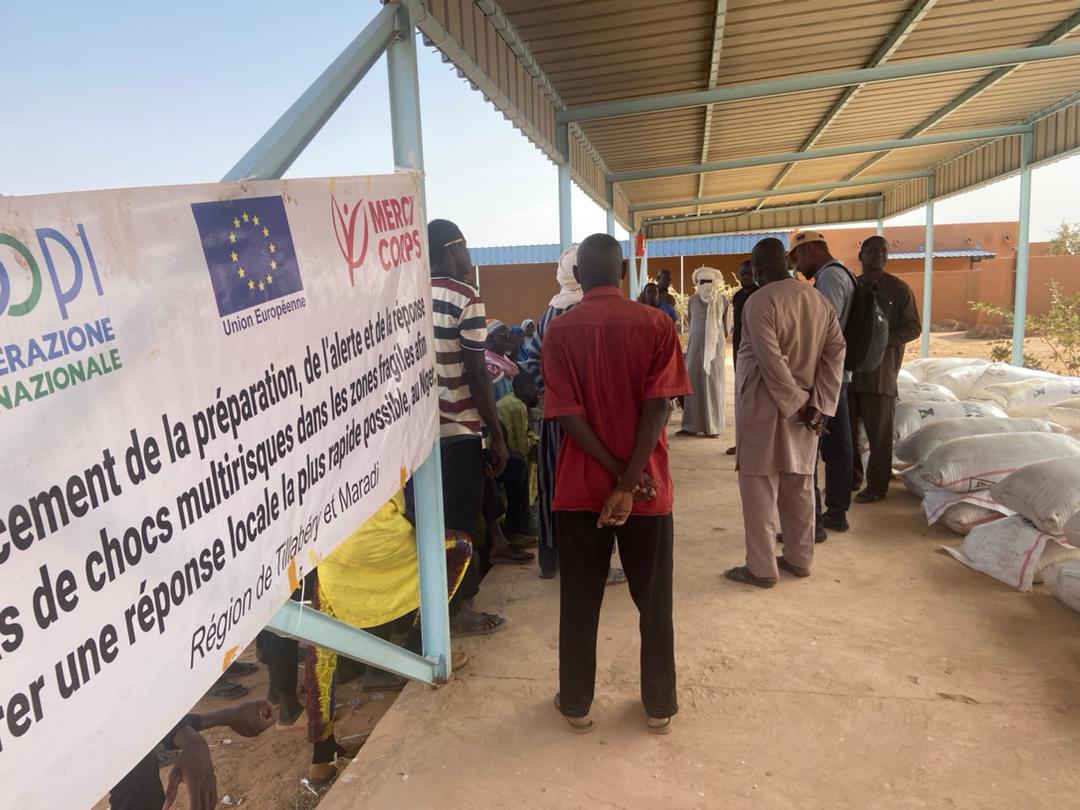02-04-2025 | di COOPI
Niger: Local communities respond to floods thanks to the COOPI-ECHO project
With less than two months remaining until the end of the project "Strengthening preparedness, warning and response to multi-hazard shocks in fragile areas to ensure the fastest possible local response", implemented by COOPI – Cooperazione Internazionale and Mercy Corps with the support of European Humanitarian Aid (ECHO), its concrete impact and efficiency have been demonstrated during the floods that struck Niger between June and October 2024, affecting more than 1.5 million people.
Thanks to enhanced capacities, the targeted municipalities were able to respond quickly: 180 households in Ayorou and 115 in Ouallam received immediate assistance through NFI (Non-Food Items) kits and improved seeds in August and September 2024, as did 136 households in Gabi and 93 in Madarounfa.
Strengthened Local Capacities for a Rapid Response
Through this project, the targeted municipalities now have updated communal crisis management plans, appropriate logistical equipment, and strategic buffer stocks to respond to immediate shocks. A key aspect has been the strengthening of community structures, such as Community-Based Early Warning and Emergency Response Systems and Vulnerability Monitoring Observatories, enabling communities to actively contribute to their own resilience. Additionally, the establishment of Risk and Disaster Management Committees in each municipality has improved coordination between local governments, state services, and humanitarian partners.
The project has not only enabled a rapid emergency response but has also facilitated the sharing of valuable lessons with all stakeholders. Despite persistent challenges related to humanitarian access and insecurity, particularly due to attacks by armed groups, collaboration with local actors has continued, consolidating the project’s achievements and preparing for the future. With better-equipped municipalities, improved early warning and response mechanisms, and increased community involvement, this project demonstrates its immediate operational effectiveness.
 Anticipating and Responding to Crises: A Strengthened Commitment in Niger
Anticipating and Responding to Crises: A Strengthened Commitment in Niger
In Niger, vulnerability to multifaceted crises continues to worsen due to structural and situational factors. Armed conflicts, massive population displacements, food insecurity, droughts, and recurrent floods are major challenges, testing the resilience of communities. According to a report published by OCHA and the Ministry of Humanitarian Affairs in November 2024, these crises particularly affect the Tillabéri and Maradi regions. In response to this reality, locally adapted, rapid, and effective responses—such as the one implemented by COOPI—are more essential than ever.
COOPI has been working in Niger since 2012 developing integrated multi-sector intervention programmes, responding to various humanitarian crises. Today we intervene with 23 projects in the areas of nutrition, food security, emergency education, psychosocial support, mental health, protection, disaster risk reduction and preparedness, and entrepreneurial development.




 Niger
Niger